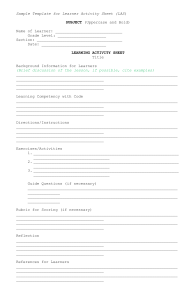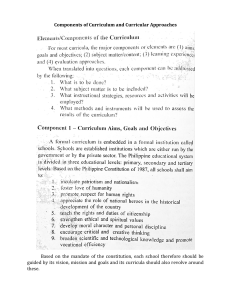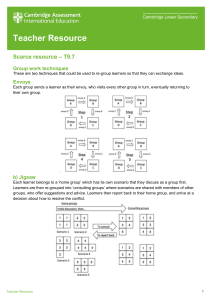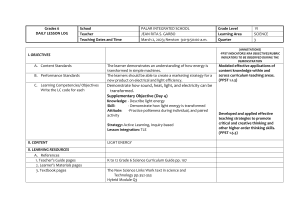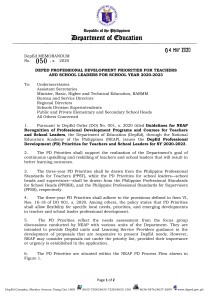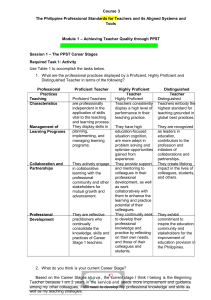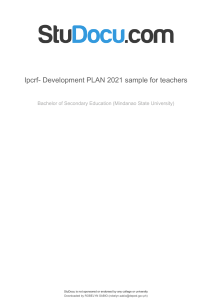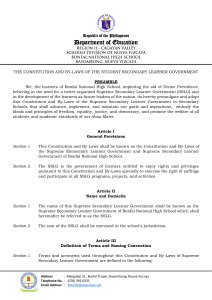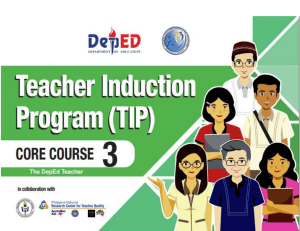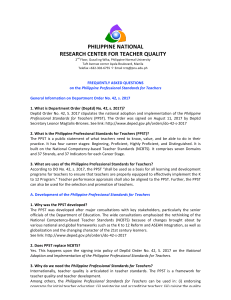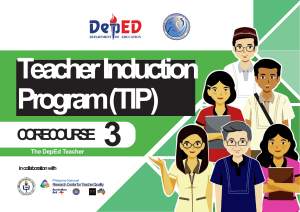Philippine Professional Standards for Teachers (PPST) Curriculum
advertisement
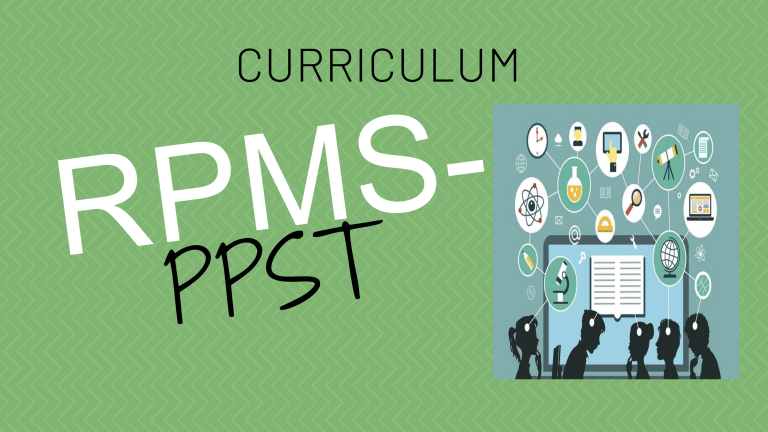
CURRICULUM Bygone Times of RPMS-PPST (NCBTS) • To complement reform initiatives on teacher quality, the Philippine Professional Standards for Teachers (PPST) has been developed and nationally validated. This was signed into policy by Department of Education (DepEd) Secretary Leonor Magtolis Briones through DepEd Order No. 42, s. 2017. Bygone Times of RPMS-PPST (NCBTS) • The PPST articulates what constitutes teacher quality through well-defined domains, strands and indicators that provide measures of professional learning, competent practice and effective engagement across teachers’ career stages. This document serves as a public statement of professional accountability that can help teachers reflect on and assess their own practices as they aspire for personal growth and professional development. Beginning Teachers Proficient Teachers Highly Proficient Teachers Distinguished Teachers Domain 1, Content Knowledge and Pedagogy 1. Content knowledge and its application within and across curriculum areas 2. Research-based knowledge and principles of teaching and learning 3. Positive use of ICT 4. Strategies for promoting literacy and numeracy 5. Strategies for developing critical and creative thinking, as well as other higher-order thinking skills 6. Mother Tongue, Filipino and English in teaching and learning 7. Classroom communication strategies Domain 2, Learning Environment 1. Learner safety and security 2. Fair learning environment 3. Management of classroom structure and activities 4. Support for learner participation 5. Promotion of purposive learning 6. Management of learner behavior Domain 3, Diversity of Learners 1. Learners’ gender, needs, strengths, interests and experiences 2. Learners’ linguistic, cultural, socioeconomic and religious backgrounds 3. Learners with disabilities, giftedness and talents 4. Learners in difficult circumstances 5. Learners from indigenous groups Domain 4, Curriculum and Planning 1. Planning and management of teaching and learning processes 2. Learning outcomes aligned with learning competencies 3. Relevance and responsiveness of learning programs 4. Professional collaboration to enrich teaching practice 5. Teaching and learning resources including ICT Domain 5, Assessment and Reporting 1. Design, selection, organization and utilization of assessment strategies 2. Monitoring and evaluation of learner progress and achievement 3. Feedback to improve learning 4. Communication of learner needs, progress and achievement to key stakeholders 5. Use of assessment data to enhance teaching and learning practices and programs Domain 6, Community Linkages and Professional Engagement 1. Establishment of learning environments that are responsive to community contexts Philippine Professional Standards for Teachers 2. Engagement of parents and the wider school community in the educative process 3. Professional ethics 4. School policies and procedures Domain 7, Personal Growth and Professional Development 1. 2. 3. 4. Philosophy of teaching Dignity of teaching as a profession Professional links with colleagues Professional reflection and learning to improve practice 5. Professional development goals
